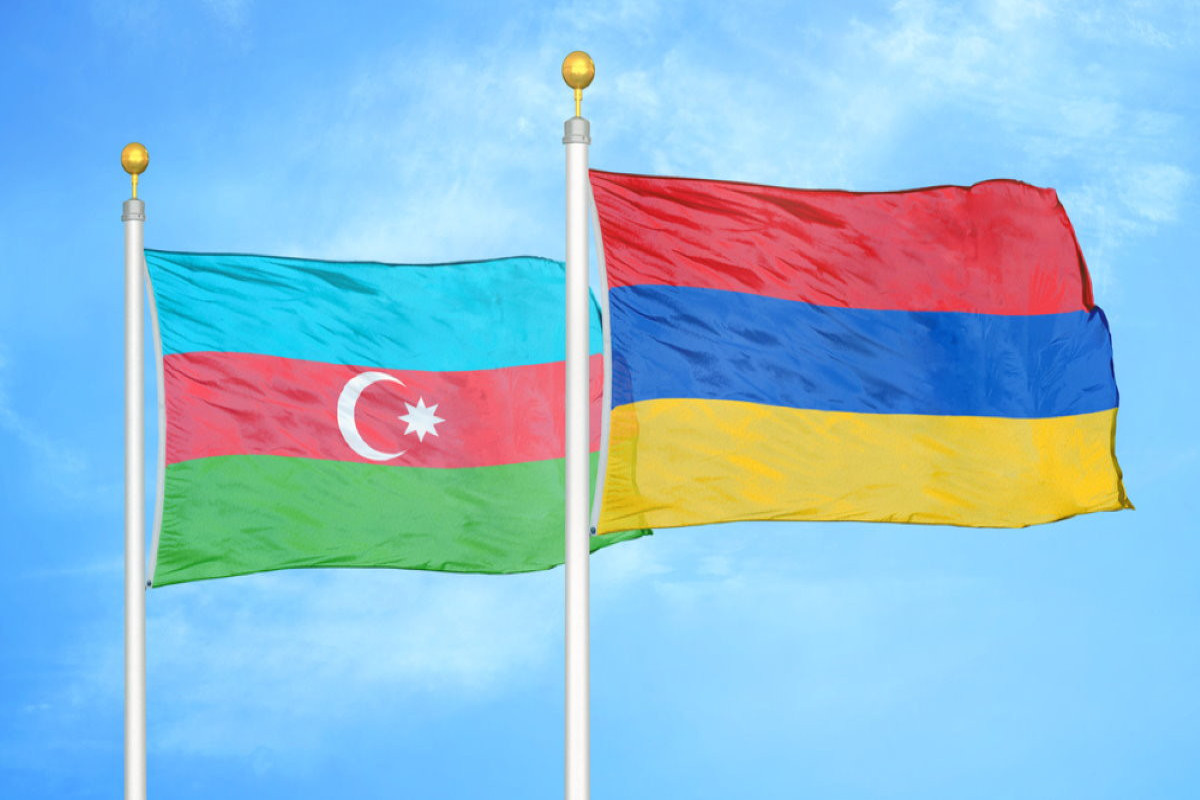The telephone conversation between Azerbaijani President Ilham Aliyev and EU Council President Charles Michel, as well as discussions during the reception of the Russian Foreign Ministry's Special Envoy for the normalization of Azerbaijani-Armenian relations Igor Khovayev on April 25, show that talks on signing a peace agreement have intensified.
Armenian Prime Minister Nikol Pashinyan paid an official visit to Russia last week.
After returning from Moscow, he made conflicting statements about the fate of the Brussels agreements, but he was aware that he could not back down from the agreements reached so far.
The analysis of the processes shows that the Armenian leadership is trying to turn the negotiation process into a subject of geopolitical competition between Russia and the West through unsuccessful political maneuvers.
The fact that Russia and the European Union share the same position on the issues on the agenda of the negotiation process is of serious concern to official Yerevan.
Therefore, although Pashinyan and his team want to evade their obligations by making various contradictory statements and taking steps that raise certain questions, sooner or later they will have to realize that this is of no use.
As a result of its flexible foreign policy and diplomacy during the post-war period, Azerbaijan has achieved the adoption of a peace agenda by both Russia and the European Union, which serves stability and large-scale economic cooperation in the region.
There is no doubt that Baku has a completely sincere position in the peace process in Moscow and Brussels.
Unlike Yerevan, Baku is not interested in monopolizing the talks by any global power center and acting as an advantage in the peace process, and considers it unacceptable.
Although the negotiation process between the two countries is mediated by both Brussels and Moscow, the process is generally based on the principles and criteria set by official Baku: mutual recognition of Armenia and Azerbaijan's territorial integrity, delimitation and demarcation of borders, opening of communications and restoration of economic ties. .
Armenia has already stated that it has accepted the five principles put forward by Azerbaijan for negotiations.
However, in some cases, its destructive approaches show that official Yerevan is not ready to recognize the territorial integrity of Azerbaijan, trying to disrupt the negotiation process.
One of the main reasons for this is the attempts of revanchist and ultra-nationalist forces at home, as well as diaspora organizations abroad to put pressure on the Pashinyan government.
The discovery of another provocative group of the Armenian Armed Forces on the Azerbaijani-Armenian border on April 23 and the forced withdrawal of saboteurs once again confirms the insincerity of official Yerevan.
It is obvious that the opposite side is trying to delay the implementation of the agreements reached in Brussels on April 6 by various means.
At the 5th Congress of World Azerbaijanis in Shusha, President Ilham Aliyev reiterated the importance of Armenia's correct assessment of proposals and initiatives for the signing of a peace agreement, which could be costly for the aggressor country;
Despite various disruptive and destructive steps, the Pashinyan government has not been able to oppose initiatives to intensify the talks and delay the process.
This means that in the current situation, Armenia will be deprived of at least 2.6 billion euros in financial assistance and soft loans promised by the European Union.
Because Brussels cannot calmly welcome Yerevan's escape from its obligations.
Russia, whose relations with the West have been completely damaged in the wake of the ongoing military operations in Ukraine and whose political prestige in the world has been damaged, is not interested in pushing the negotiations between Armenia and Azerbaijan into the background and delaying the implementation of agreements reached in the past year and a half.
One of the main reasons for this is the peace and economic integration processes in the region,
Georgia's joining the anti-Russian coalition of the West strengthens Moscow's desire to have stable and reliable transport and railway corridors outside the country.
Against the background of long-term sanctions, the Russian side now seems quite interested in the realization of the Zangazur corridor.
While receiving Igor Khovayev, Special Representative of the Russian Foreign Ministry for the normalization of Azerbaijani-Armenian relations, President Ilham Aliyev noted that the composition of the delegation to draft a peace agreement and the Azerbaijani National Commission for Delimitation and Demarcation of Borders was determined.
In a telephone conversation with EU Council President Charles Michel on April 23, the President said that in accordance with the results of the Brussels meeting, the Azerbaijani side determined the composition of the National Commission for Delimitation and Demarcation of the Armenian-Azerbaijani border and the delegation to draft a peace agreement. He stressed readiness for talks in the "Yerevan" format.
This once again confirms that our country is fully ready for the peace process.
The second telephone conversation between the Foreign Ministers of Azerbaijan and Armenia on April 25 and the direct discussions show that the agreements reached have become a practical solution.
The fact that the parties agreed on the parameters of the participants of the Joint Border Commission, the organization of meetings of the Joint Border Commission, as well as the working group on the development of a peace agreement in the near future is another real indicator of the intensification of the process.
APA Analytics
